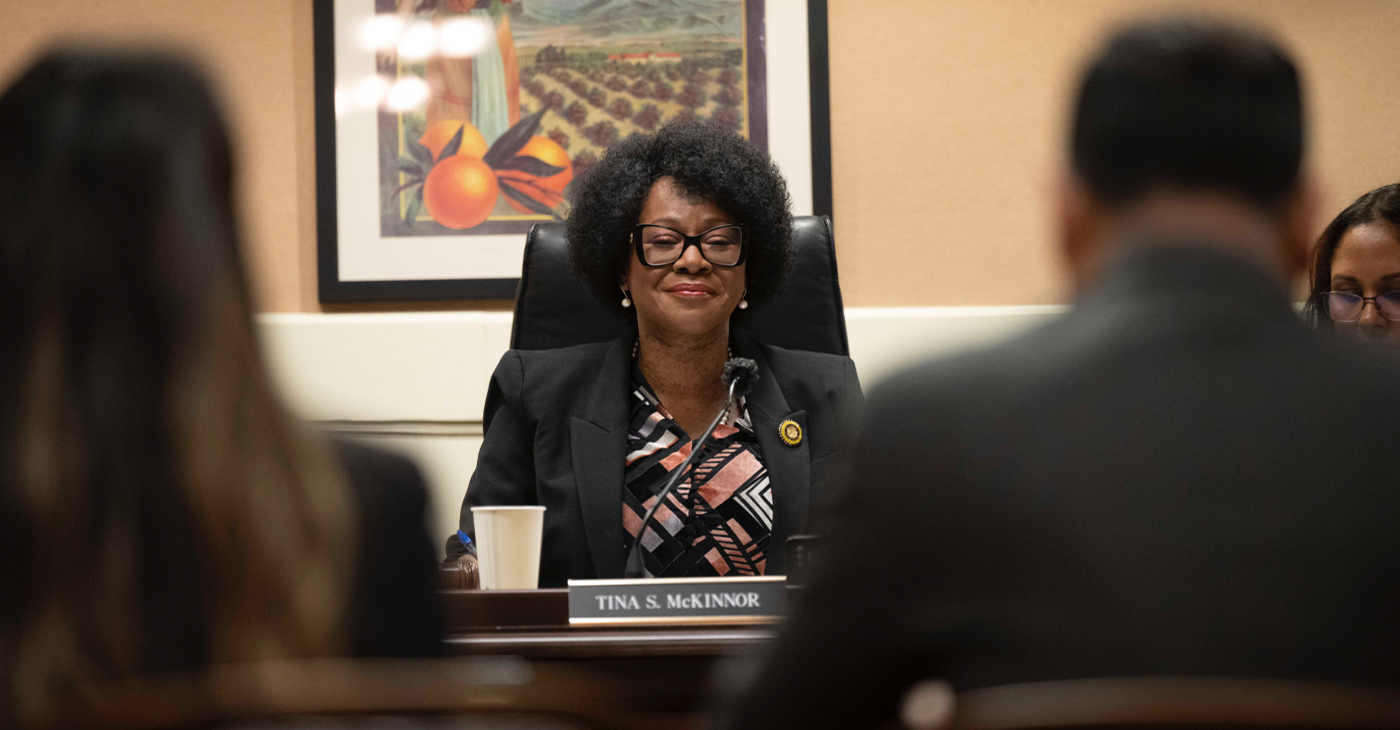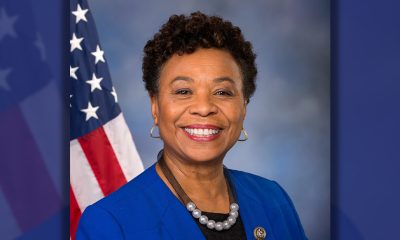California Black Media
Your Taxes Raised $83.1 Billion for the State Last Fiscal Year; Schools Received $44.6 Billion
Schools across the Golden State received a windfall of $44.6 billion in local property tax revenue, according to the 2021-22 California Board of Equalization’s (BOE) Annual Report released late last month. The funds collected from property owners for the 2021-22 fiscal year, which ended last June, was an increase of 3.8% from the previous fiscal year. Overall, local property tax revenues increased 4% or $3.2 billion to $83.1 billion total. In addition to schools, the funds were funneled to the coffers of local governments throughout California.

McKenzie Jackson
California Black Media
Schools across the Golden State received a windfall of $44.6 billion in local property tax revenue, according to the 2021-22 California Board of Equalization’s (BOE) Annual Report released late last month.
The funds collected from property owners for the 2021-22 fiscal year, which ended last June, was an increase of 3.8% from the previous fiscal year. Overall, local property tax revenues increased 4% or $3.2 billion to $83.1 billion total. In addition to schools, the funds were funneled to the coffers of local governments throughout California.
BOE Chairman Antonio Vazquez said in an April 18 statement that property taxes are a steady and reliable revenue stream for government services and schools that Californians depend on daily.
“The BOE’s critical role protects these dollars through its oversight of property tax assessments and that they are done fairly, uniformly, and consistently,” he said.
The board released a 26-page report weeks after California Democratic lawmakers proposed Assembly Constitutional Amendment (ACA) 11 to abolish the board and reassign its duties to other state tax agencies effective Jan. 1, 2026.
The board is responsible for overseeing property tax collection in all 58 of California’s counties. It also makes more than 13 million tax assessments every year.
The report, released yearly to provide information on revenue collected by the five-member tax body and detail its accomplishments, made no mention of the amendment.
In addition to Vazquez, who represents the BOE’s Third District, other members are: State Controller Malia M. Cohen; Ted Gaines (First District); Sally J. Lieber (Second District); and Mike Schaefer, Vice Chair (Fourth District). Yvette M. Stowers, who was appointed by the Board, serves as Executive Director.
Cohen, the first African American woman to chair the BOE, was voted State Controller last November. She took office in January this year.
This year’s report found that the total net statewide county-assessed property value increased by 7% to $7.6 trillion in fiscal year 2021-22, up $500 billion from the previous year.
The assessed property value has increased annually for the past 10 years from $4.6 trillion in 2013. For example, it was $5.8 trillion in 2017, $6.9 trillion in 2020 and $7.2 trillion in 2021.
Schools receive a lion’s share of property tax revenues. The 2020-21 fiscal year, $38.5 billion went to counties ($11.7 billion), cities ($10.4 billion) and special districts ($16.3 billion).
Local governments also received $2.2 billion from state-assessed property tax revenues. Last May, the board set the values of 339 state-assessed properties — mainly public utilities and railroads — at $133.9 billion, an increase of $10.8 billion from the previous year. This property tax revenue together with the county-assessed property tax monies will give local municipalities $85.3 billion in property tax funds.
The report also informs Californians of the Taxpayers Rights Advocate (TRA) Office, which is independent of the BOE.
The TRA Office receives contacts from taxpayers and others who are either seeking assistance with a problem or a disagreement they have in the assessment and collection of property taxes or a concern with a program administered by our agency,” the report reads. “Generally, the TRA Office assists taxpayers who have been unable to resolve a matter through normal channels and seek confirmation that they were treated fairly under the law.”
The BOE report found that the state government will receive $3.3 billion in revenue from the Alcoholic Beverage Tax Program, Tax on Insurers Program and Private Railroad Car Tax.
The Alcoholic Beverage Tax Program garnered $429 million. The program is a per-gallon excise tax collected on the sale, distribution, or importation of alcoholic beverages to the state. The monies from this tax are placed into the Alcohol Beverage Control Fund and are withdrawn to be used by the state’s general funds or to pay refunds under the program.
The Tax on Insurers Program, administered by the board, State Controller’s Office, and California Department of Insurance, generated $2.9 billion for the state. Insurance companies conducting business in California are subject to as many as three taxes — a tax on gross premiums, a retaliatory tax, and the ocean marine tax.
The Private Railroad Car Tax, an in-lieu property tax on railroad cars owned by non-railroad companies and operated upon California railroads, generated $9.8 million in funds.
The report also revealed that bills that became effective in the last two years impacted programs run by the Board of Equalization. Assembly Bill 137, for example, extended the assessment appeals decision deadline for qualified applications whose two-year deadline was between March 4, 2020, and March 31, 2021 to Dec. 31, 2021. One bill, AB 1203, expanded the type of work experience an individual must have to be eligible to serve on an assessment appeals board in Los Angeles County to include professional experience in fields such as real estate.
Senate Bill (SB) 825 extended the welfare exemption from property tax for land conservancies and trusts from lien date 2022 to lien date 2027. The legislation also extended the sunset gate for intercounty pipeline right-of-way assessments from 2020-21 to 2025-26.
In a letter at the beginning of the budget report, Board of Equalization Executive Director Yvette Stowers said the board is focused on its mission of tax administration to support California governments.
“We are proud to serve this great State of California and will continue to do our part to provide essential revenues for the state and local governments,” Stowers wrote.
Activism
Oakland Post: Week of April 24 – 30, 2024
The printed Weekly Edition of the Oakland Post: Week of April 24 – 30, 2024

To enlarge your view of this issue, use the slider, magnifying glass icon or full page icon in the lower right corner of the browser window. ![]()
Business
Black Business Summit Focuses on Equity, Access and Data
The California African American Chamber of Commerce hosted its second annual “State of the California African American Economy Summit,” with the aim of bolstering Black economic influence through education and fellowship. Held Jan. 24 to Jan. 25 at the Westin Los Angeles Airport Hotel, the convention brought together some of the most influential Black business leaders, policy makers and economic thinkers in the state. The discussions focused on a wide range of economic topics pertinent to California’s African American business community, including policy, government contracts, and equity, and more.

By Solomon O. Smith, California Black Media
The California African American Chamber of Commerce hosted its second annual “State of the California African American Economy Summit,” with the aim of bolstering Black economic influence through education and fellowship.
Held Jan. 24 to Jan. 25 at the Westin Los Angeles Airport Hotel, the convention brought together some of the most influential Black business leaders, policy makers and economic thinkers in the state. The discussions focused on a wide range of economic topics pertinent to California’s African American business community, including policy, government contracts, and equity, and more.
Toks Omishakin, Secretary of the California State Transportation Agency (CALSTA) was a guest at the event. He told attendees about his department’s efforts to increase access for Black business owners.
“One thing I’m taking away from this for sure is we’re going to have to do a better job of connecting through your chambers of all these opportunities of billions of dollars that are coming down the pike. I’m honestly disappointed that people don’t know, so we’ll do better,” said Omishakin.
Lueathel Seawood, the president of the African American Chamber of Commerce of San Joaquin County, expressed frustration with obtaining federal contracts for small businesses, and completing the process. She observed that once a small business was certified as DBE, a Disadvantaged Business Enterprises, there was little help getting to the next step.
Omishakin admitted there is more work to be done to help them complete the process and include them in upcoming projects. However, the high-speed rail system expansion by the California High-Speed Rail Authority has set a goal of 30% participation from small businesses — only 10 percent is set aside for DBE.
The importance of Diversity, Equity and Inclusion (DEI) in economics was reinforced during the “State of the California Economy” talk led by author and economist Julianne Malveaux, and Anthony Asadullah Samad, Executive Director of the Mervyn Dymally African American Political and Economic Institute (MDAAPEI) at California State University, Dominguez Hills.
Assaults on DEI disproportionately affect women of color and Black women, according to Malveaux. When asked what role the loss of DEI might serve in economics, she suggested a more sinister purpose.
“The genesis of all this is anti-blackness. So, your question about how this fits into the economy is economic exclusion, that essentially has been promoted as public policy,” said Malveaux.
The most anticipated speaker at the event was Janice Bryant Howroyd known affectionately to her peers as “JBH.” She is one of the first Black women to run and own a multi-billion-dollar company. Her company ActOne Group, is one of the largest, and most recognized, hiring, staffing and human resources firms in the world. She is the author of “Acting Up” and has a profile on Forbes.
Chairman of the board of directors of the California African American Chamber of Commerce, Timothy Alan Simon, a lawyer and the first Black Appointments Secretary in the Office of the Governor of California, moderated. They discussed the state of Black entrepreneurship in the country and Howroyd gave advice to other business owners.
“We look to inspire and educate,” said Howroyd. “Inspiration is great but when I’ve got people’s attention, I want to teach them something.”
California Black Media
Asm. Tina McKinnor Elected Chair of L.A. Delegation to Legislature
On Jan. 24, the members of the Los Angeles County Delegation (LACD) to the California Legislature elected Assemblymember Tina McKinnor (D-Inglewood) as the group’s chair. McKinnor, who is a member of the California Legislative Black Caucus, will lead the 39-member body, which is comprised of 15 State Senators and 24 State Assemblymembers representing various areas of Los Angeles County.

By California Black Media
On Jan. 24, the members of the Los Angeles County Delegation (LACD) to the California Legislature elected Assemblymember Tina McKinnor (D-Inglewood) as the group’s chair.
McKinnor, who is a member of the California Legislative Black Caucus, will lead the 39-member body, which is comprised of 15 State Senators and 24 State Assemblymembers representing various areas of Los Angeles County.
As LACD chair, McKinnor succeeds Assemblymember Luz Rivas (D-San Fernando Valley).
“I am grateful for the trust legislators from the Los Angeles County Delegation have placed in me to serve as its next Chair,” said McKinnor in a statement.
LACD Vice Chair, Sen. Maria Elena Durazo (D-Los Angeles), said the body, which collectively represents about 10 million people in California’s populous county, is the largest, bi-partisan, and most diverse delegation in the California Legislature.
“Heading into a challenging budget year, the Delegation, and I will be intensely focused on making sure communities throughout Los Angeles County receive the services they need and that we continue our historic investments to address homelessness and the housing affordability crisis in Los Angeles County,” Durazo added.
McKinnor thanked Rivas for her stewardship of the LACD during the last legislative session.
“The Delegation and I are grateful to outgoing Chair, Assemblymember Luz Rivas, for her incredible leadership to the Legislature, the state, and especially the people of Los Angeles County,” said McKinnor.
-

 Community2 weeks ago
Community2 weeks agoFinancial Assistance Bill for Descendants of Enslaved Persons to Help Them Purchase, Own, or Maintain a Home
-

 Activism4 weeks ago
Activism4 weeks agoOakland Post: Week of April 3 – 6, 2024
-

 Business2 weeks ago
Business2 weeks agoV.P. Kamala Harris: Americans With Criminal Records Will Soon Be Eligible for SBA Loans
-

 Community2 weeks ago
Community2 weeks agoAG Bonta Says Oakland School Leaders Should Comply with State Laws to Avoid ‘Disparate Harm’ When Closing or Merging Schools
-

 Activism3 weeks ago
Activism3 weeks agoOakland Post: Week of April 10 – 16, 2024
-

 Community2 weeks ago
Community2 weeks agoOakland WNBA Player to be Inducted Into Hall of Fame
-

 Community2 weeks ago
Community2 weeks agoRichmond Nonprofit Helps Ex-Felons Get Back on Their Feet
-

 Community2 weeks ago
Community2 weeks agoRPAL to Rename Technology Center for Retired Police Captain Arthur Lee Johnson





















































